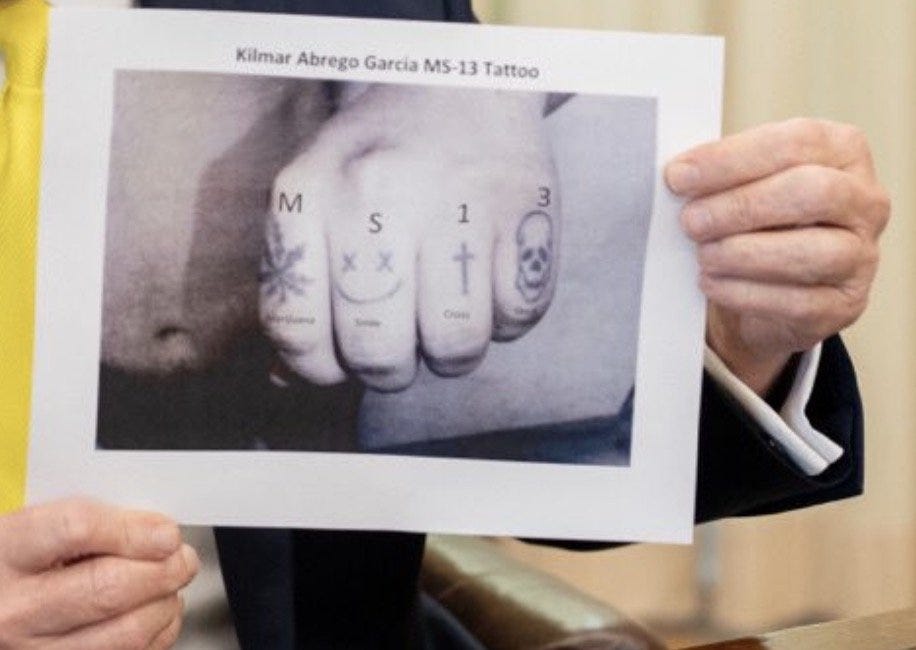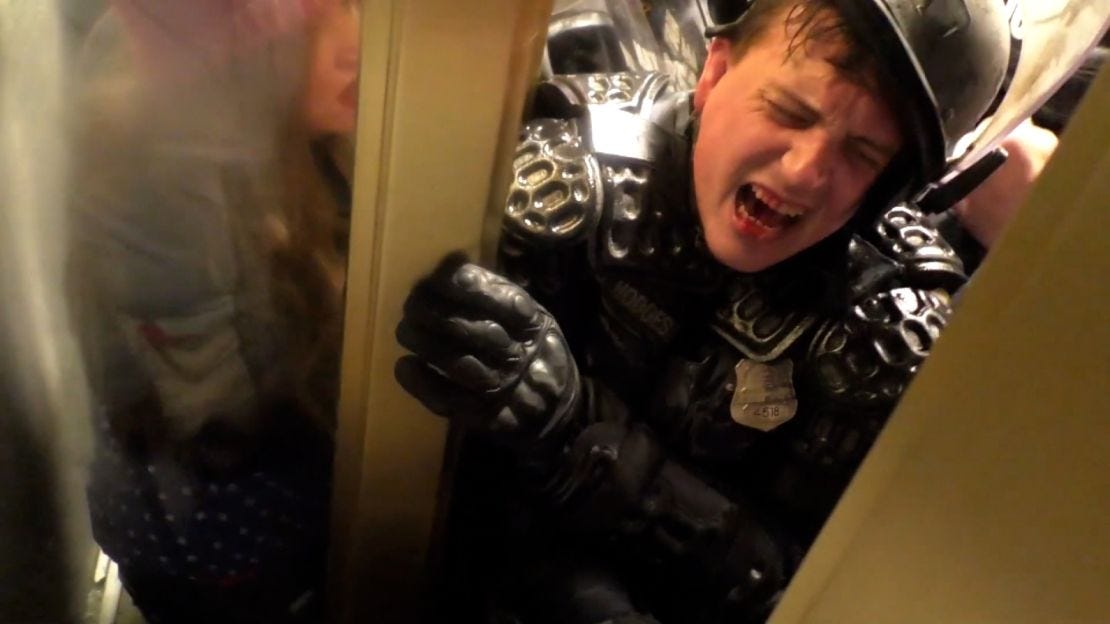On a quiet street in Maryland, a woman named Jennifer Vasquez Sura packed her children’s things—again. The blinds were already drawn, the door triple-locked. Outside, it looked like any suburban home. But inside, the fear was suffocating. Her children, two of them autistic, were no longer allowed to play in their own backyard. This wasn’t a crime scene. It was a digital bullseye placed on her by the U.S. government.
The Department of Homeland Security (DHS) had posted a document to its 2.4 million followers on Twitter, one that included her full home address—unredacted and plainly visible.
(This author has chosen to redact them here out of respect for Jennifer & her children)
It wasn’t a mistake, at least not in the eyes of the administration. The document was a 2021 protective order that Vasquez Sura had filed during a moment of immense stress. A month later, she dissolved it. But now, in 2025, DHS chose to resurface and weaponize it putting not only Jennifer but her children in harms way.
Manufacturing A Monster
That post was part of a broader campaign to discredit her husband, Kilmar Abrego García. At the time of his deportation, García had a valid stay of removal in place—a court order explicitly preventing his deportation on humanitarian grounds. Initially, the administration called it an accident—an administrative error. A simple mistake.
But that excuse didn’t hold. Public scrutiny intensified. Then came the shift.
Next, the Department of Homeland Security claimed García was a member of Tren de Aragua, a violent Venezuelan gang with no established ties to García and no supporting evidence presented. The public was left to connect the dots that didn’t exist.

And then—yet another pivot. DHS moved away from Tren de Aragua and declared García an MS-13 gang member involved in human trafficking. They cited a stop in Tennessee where García was found driving a van of passengers—people his legal team say were acquaintances or workers, not victims.
Still, no charges. No convictions. Just recycled narratives pulled from the playbook of fear.
Meanwhile, human rights organizations confirmed that García was not in any gang-affiliated prison or rehabilitation center. He was locked in El Salvador’s CECOT mega-prison—one of the world’s most brutal incarceration facilities, designed to house accused gang members with little transparency or due process.
The administration’s story wasn’t just inconsistent—it was strategic. Each version of events grew more dramatic, more dangerous-sounding. But none of it was rooted in fact.
Their message changed not because new information emerged, but because the old narrative wasn’t working.
The so-called “evidence” was flimsy at best: a dissolved protective order, a routine traffic stop, a secondhand tip about a New York gang clique—though García had never even lived in New York. One federal judge called the case against him “shockingly thin.” But that didn’t matter. The administration didn’t need a conviction. They needed a scapegoat. And in doing so, they painted a target on his entire family.
When the State Exposes You
After DHS doxxed her address, Jennifer had no choice but to flee. Her home became a threat. The familiar walls, once a place of comfort for her three children, were now a danger zone. “I don’t feel safe when the government posts my address,” she told The Washington Post. “This case has gone viral. People have all sorts of opinions. I’m scared for my kids.”
Her fear wasn’t irrational. It was grounded in history. On January 6, 2021, the world saw what can happen when extremist rhetoric meets government-endorsed narratives. A violent mob, radicalized by lies and propaganda, stormed the U.S. Capitol in an attempt to overturn a lawful election. A Capitol Police officer was killed, others were injured, and lawmakers were forced to evacuate. The threat wasn’t abstract. It was proven.
Now, years later, those same forces were still active—online, organized, and angry. The government didn’t just expose her address; it threw gasoline on a fire. Her family wasn’t protected. It was endangered. And in the minds of those looking for a new target, Jennifer became one. Not because of anything she did—but because of who she loved.
Who Are They Protecting?
The Trump administration claimed to be protecting American families. But whose families? Not Jennifer’s. Not her children’s. Not the ones who were forced into hiding because of a tweet.
This wasn’t national security. This was political theater. And Jennifer Vasquez Sura was cast as a villain simply for loving a man the system decided to disappear. Her trauma was made public. Her address was posted. Her children were made invisible.
The Fight From Hiding
Jennifer Vasquez Sura now lives in hiding. She won’t say where—only that she and her children are safe, for now. But there is no true safety when your name has been blasted across social media by your own government. When the institution meant to protect you instead turns you into a symbol for political theater.
Her husband, Kilmar Abrego García, remains imprisoned in El Salvador despite a Supreme Court ruling that ordered the U.S. government to facilitate his return. Federal judges have condemned the administration’s actions, yet no meaningful steps have been taken.
On April 22, 2025, Judge Paula Xinis issued a blistering ruling that laid bare the truth: the Trump administration had not only ignored court orders, but had actively obstructed the legal process. She accused them of evading discovery by hiding behind vague, unsupported claims of privilege and misrepresenting the Supreme Court’s mandate. According to Xinis, the government was operating in “willful and bad faith.”
García’s attorneys said they received little more than public records and boilerplate responses in discovery. Meanwhile, the administration repeated old accusations—claiming Kilmar was an MS-13 member and a terrorist—despite a 2019 immigration judge having already rejected those claims.
As members of Congress returned from El Salvador reporting zero evidence of U.S. efforts to bring García home, the message became clear: this isn’t negligence. It’s a cover-up. Every conflicting explanation, every refusal to cooperate, every exaggerated label—it’s all part of a desperate attempt to rewrite a mistake into a justification.
Anyone unwilling to see that isn’t missing the point—they’re choosing not to. Because the truth is loud. It’s in court records, in congressional briefings, in the silence of an unanswered door. And Jennifer, though exhausted, refuses to go quiet.
“If God threw me in this, I know He’s going to take me out of it,” she said. “This is God’s battle. And I’m going to fight it—for Kilmar, and for everyone.”
This article is part of an ongoing investigation into the use of the Alien Enemies Act and the secretive deportation of innocents to an El Salvadorian Prison.
If you made it this far — thank you. This blog is completely free and always will be. I write to make sense of the chaos, connect the dots, and say the quiet part out loud when no one else will.
I’m going to keep speaking out—for Kilmar, and for everyone else.









Monsters.
Mrs. Garcia,
Is a very courageous woman. Thank you for sharing her story and giving witness to her courage.